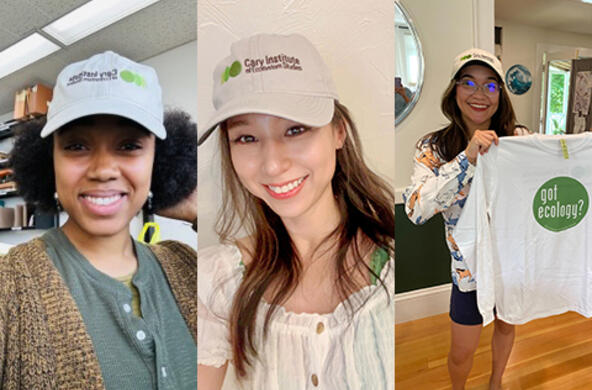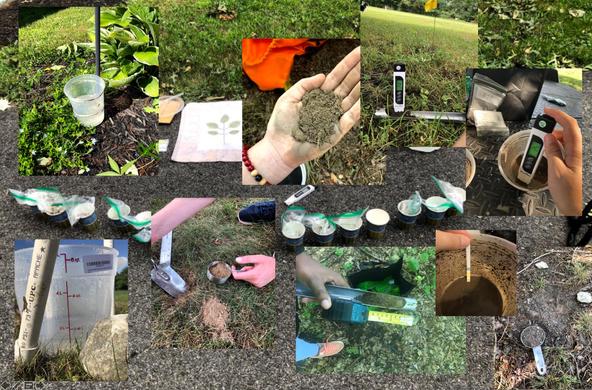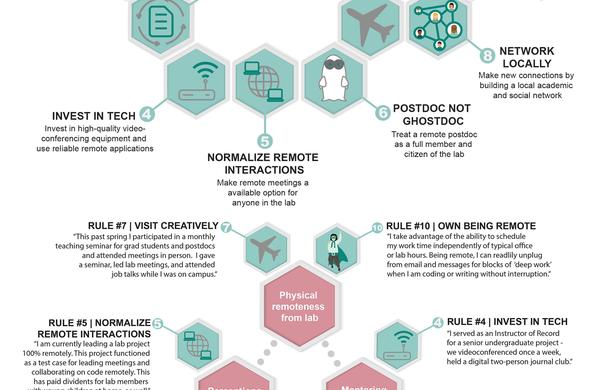It was 90 degrees. I was walking through a forest in Connecticut, trying to find a small plot of seedlings I had planted a few weeks before. It was my job to measure invasive plants in different forest habitats as they grew all summer. Why was I doing this? I was lucky enough to undertake a Research Experience for Undergraduates (REU) project as a rising junior. The project, based at the University of Connecticut, looked at the role of invasive birds in spreading invasive plants like autumn olive and Asiatic bittersweet.
It was this project that transformed me from seeing myself as an aimless first-generation, non-traditional, 30-year-old college student to seeing myself as a scientist – a role that I would have never imagined for myself as a kid growing up on welfare in Boston.
The REU program supports undergraduate students who conduct independent research projects alongside scientist mentors over a summer. At Cary Institute, mentors include scientists studying forests, freshwaters, disease ecology, and urban ecology.
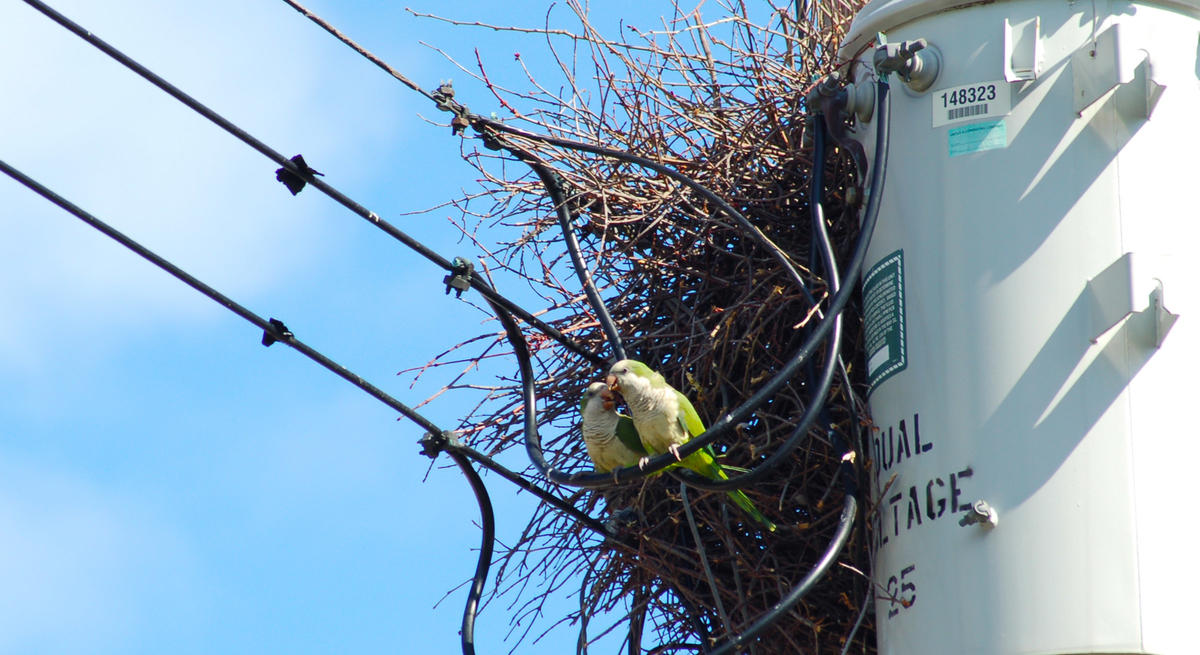
As part of my REU, in addition to doing fieldwork for the invasive plant study, I was required to put together my own research project, much like we do here at Cary. One day when I was out birdwatching, I was startled to discover a flock of parrots – which I didn’t realize lived in coastal Connecticut – drinking from a roadside puddle. I was inspired to learn more. For my independent project, I set out to explore the nesting behavior of these curious birds. This project on monk parakeets sparked a research interest that drives my work today.
That summer was hot and tedious work. But I was outside, hiking in the woods, and getting paid to do it – something I hadn’t previously known to be a possibility. Growing up in a low-income family in Boston, I had little awareness of the broad range of career options available. No one in my family had gone to college; only my aunt had even finished high school. I joined the military after high school because I had no idea how to apply to college, nor did I have much help.
Despite these challenges, years later, with the guidance of my undergrad advisor and REU mentor Margaret Rubega – who became my PhD advisor, then later supervised me as a postdoc – there I found myself, in a forest, on my hands and knees, happily counting leaves on seedlings.
Being a first-generation college student came with some insecurities. My confidence in choosing science as a career was shaky, and imposter syndrome became an ongoing challenge – one which I continue to struggle with at times to this day. But my REU was a turning point. It gave me the confidence to not only see myself as a scientist, but to realize that I wanted to be a scientist. Having undergone an important personal transformation as an REU, it is my goal to ensure that the students who join us at Cary have an equally rewarding experience.
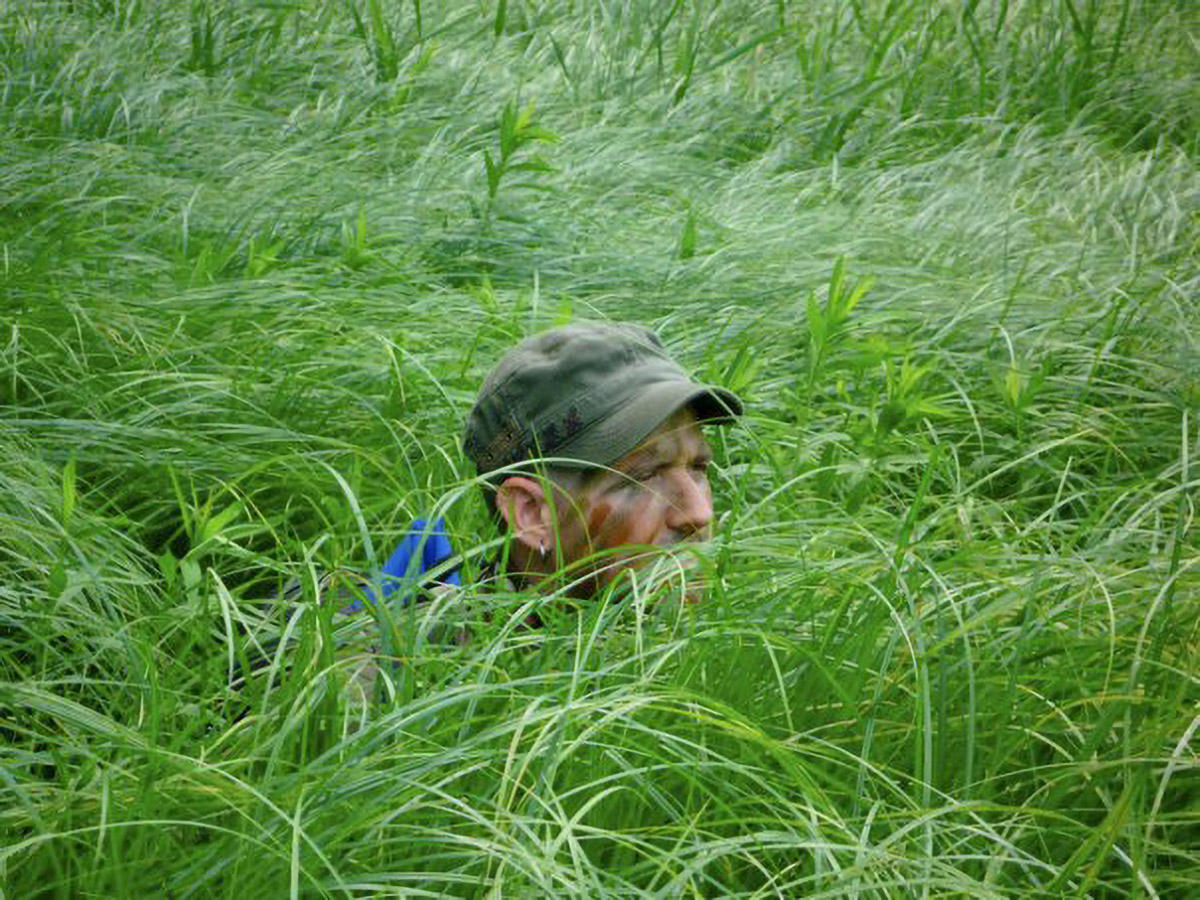
REU programs yield all sorts of practical benefits for students. REUs help students learn about the scientific process, and in Cary’s case, determine whether ecology is a field they would like to pursue. Students sharpen existing science skills, learn new ones, and build confidence along the way. A unique aspect of Cary’s REU program is our emphasis on teaching translational ecology. We believe that science needs to be communicated clearly and broadly to have impact. Teaching science communication is part of our program, as is introducing students to a range of career options related to ecology beyond the world of academia.
Applications for the 2020 REU program at Cary Institute are now open. We are committed to creating and maintaining an open and inclusive environment and encourage everyone interested to apply. Learn more about the REU program at Cary.
For the students who read this, if you have any questions, please email me at, burgiok@caryinstitute.org
The Research Experience for Undergraduates (REU) program is funded by the National Science Foundation.




